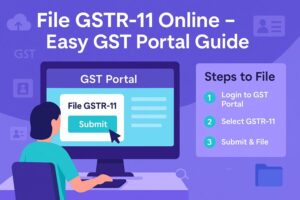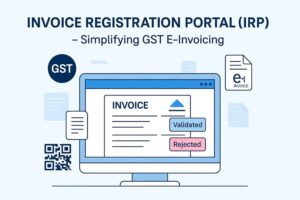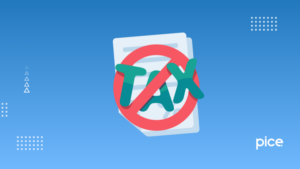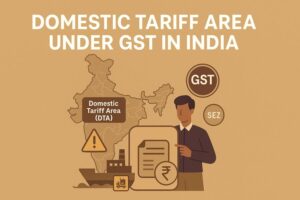Transportation Services GST Rate for Road, Rail, Air & Water
- 13 Jun 25
- 12 mins
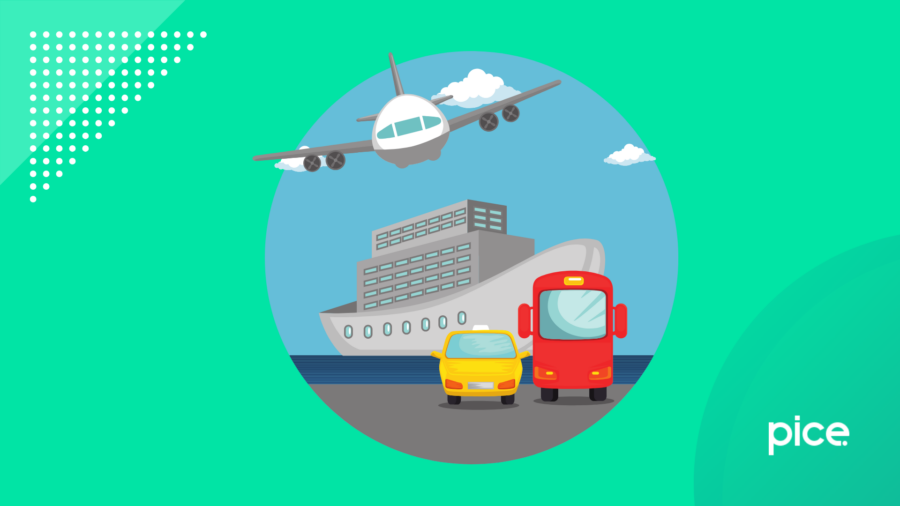
Transportation Services GST Rate for Road, Rail, Air & Water
Key Takeaways
- GST on road transport varies by service type—public transport and metered taxis are exempt, while rentals and AC services attract up to 18%.
- Goods Transport Agency (GTA) services attract 5% GST without ITC or 12% with ITC, depending on consignment note issuance.
- Passenger transport via rail is exempt in general and sleeper classes, but AC classes are taxed at 5%.
- Air travel attracts 5% GST for economy and 12% for business class, with aircraft rentals and cargo services taxed at 18%.
- Water transport services for goods and passengers are taxed at 5% without ITC, while rentals of vessels incur 18% GST.
Whether by road, rail water or air, transportation plays a crucial role in India's economy. It connects marketplaces and drives economic growth. The GST rate on transportation services has redefined the tax structure. It not only influences costs but also business operations.
However, GST rates vary remarkably based on the types of goods and services and fall under specific HSN codes. It makes compliance easier for individuals or enterprises. Let us examine how these changes shape the whole transport sector in India.
GST Rates on Transport: Road Services in 2025
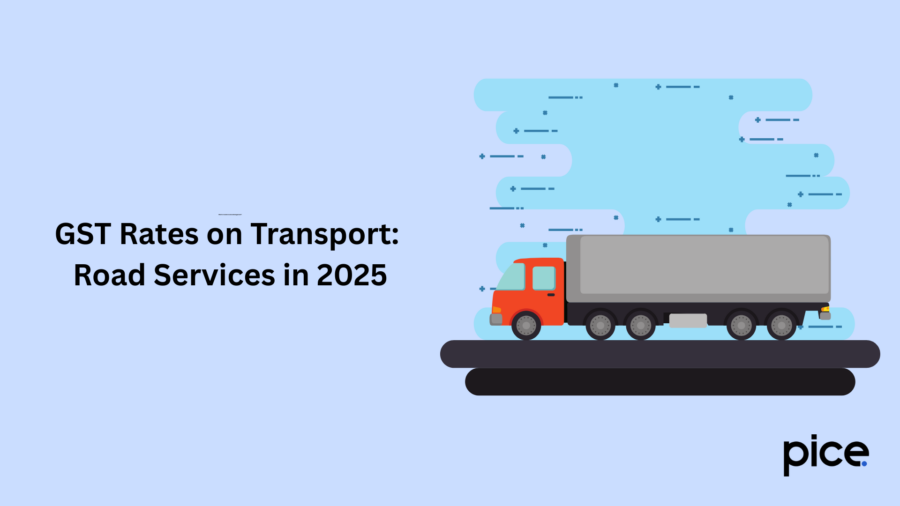
The GST rates imposed on road transport depend on the particular mode of transportation selected. Scroll down to discover a table that mentions types of road transport services and their specific GST rates.
| Various Kinds of Road Transport Services | GST Rate |
| Transportation via non-AC contract carriage or stagecoach | NIL |
| Transportation via radio taxi and similar services | 5% |
| Passenger transportation via public transport services | NIL |
| Transportation via rental services for buses, coaches and cars | 18% |
| Transport by road via taxi, auto rickshaw, e-rickshaw with a meter | NIL |
| Transportation via Stagecoach or AC Contract Carriage (without Input Tax Credit) | 5% |
GST Rates on Road Transport Services for Goods Supply (GTA, non-GTA) in 2025
According to Notification No. 11/2017-Central Tax (Rate), a GTA (Goods Transport Agency) refers to any person or establishment that provides transportation services for goods by road and issues a consignment note, regardless of its name.
In simple words, although various businesses may rent out vehicles for transporting goods, only those that provide a consignment note qualify as a GTA. It means that the consignment note issuance is a key requirement for classification as a GTA.
GST rates on transport charges of goods by a GTA are:
● 5% GST if Input Tax Credit (ITC) is not availed.
● 12% GST if ITC is availed.
GST Slabs for GTA Services:
0% GST: This GST slab is imposed for goods including milk, salt, agricultural produce, organic manure, relief materials, newspapers and military gear.
Note that If the freight cost for a single carriage is below ₹1,500 or the total transportation fee for a single consignee does not exceed ₹750, it qualifies for exemption.
5% GST (without ITC) or 12% GST (with ITC): This GST slab applies to other goods that do not fall under the exemptions. It allows the transporter to select the applicable rate based on their ITC claim eligibility.
Exceptional Cases:
When an individual transports used household goods for self-use or private use or hires vehicles to a GTA, then 0% GST is applied on Transport:
Being a casual taxable person or unregistered person, when you transport goods, it was initially exempt. However, this is now taxable. However, the final list is yet to be released.
Key Differences Between Forward vs. Reverse Charge Mechanism in GST
Take a look at the following table to find out the key differences between the two mechanisms applicable under GST:
| Parameters | Forward Charge Mechanism | Reverse Charge Mechanism |
| Applicability | It is generally utilised for regular transactions. | It is typically utilised only for specified transactions. |
| Liability of Taxpayers | Supplier is entitled to pay GST | Recipient is entitled to pay GST. |
| Input Tax Credit (ITC) | Suppliers can claim ITC. | Recipients can claim ITC once they pay the tax. |
GST Rates on Transport Services: Non-GTA Road Transport
Road transport services are offered by businesses or service providers that do not fall under the category of GTAs, meaning they do not issue a consignment note. That is why they are exempt from GST. This exemption benefits organisations utilising non-GTA transport, as it removes any tax liability on services like that.
GST Rates on Passenger Transport Services in 2025
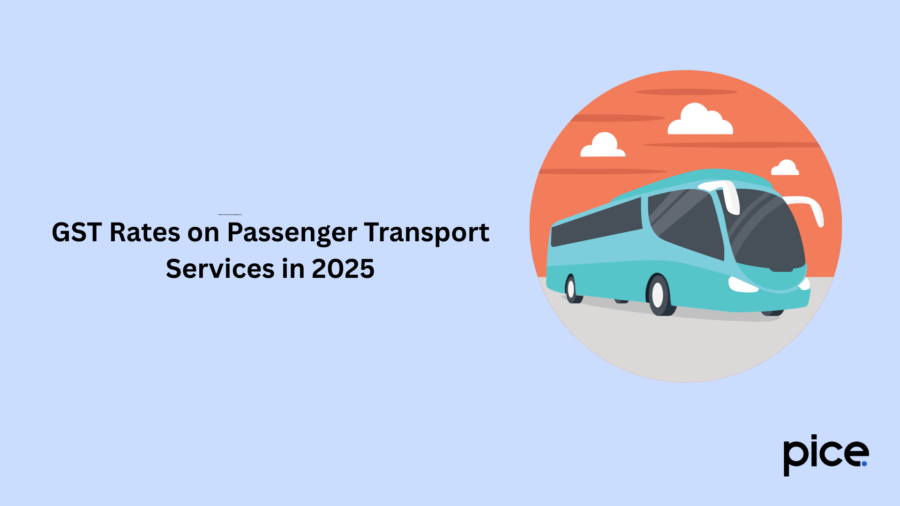
In India, passenger transport services including public transport, taxis, and cabs liable to specific GST rates, depending upon the nature of the service offered.
What Is the GST Rates on Public Passenger Transport Services?
The public passenger transport services in India are buses, trains, and metro. They are generally exempt from the GST system. This regulation ensures that affordable and essential conveyance methods remain attainable and convenient to the public passengers.
GST Rates for Taxis and Cabs Used by Passengers
Passenger transport services that are operated by private organisations, including taxis, radio taxis and cabs generally fall under a 5% GST slab. However, service providers can choose to pay 12% GST if they wish to avail the full Input Tax Credit (ITC). This scenario enables them to offset tax liabilities against other company costs.
This framework maintains affordability in public transport while offering flexibility to private operators.
GST Rates on Rail Services in 2025
In 2025, GST rates on rail transport services notably vary depending upon the travel class. If you consider passenger tickets for First Class and air-conditioned categories (1st AC, 2nd AC, 3rd AC, and AC Chair Car), you need to pay a 5% GST.
On the other hand, if you book tickets for other classes, including General, Sleeper or Second Class, and General, you will be exempt from GST.
GST Rates on Rail Freight
The GST applicable on rail transportation services for freight depends on the type of the products to be transported. Commodities like agricultural produce, milk and salt are exempt from the GST framework (mentioned above). On the other hand, general cargo and industrial goods are liable to pay a 5% GST on transportation.
Below is an overview of how GST applies to different supplier categories:
Taxable Persons Who Are Registered: Companies that are registered under the GST framework and transport products through rail services need to pay a 5% GST. They are eligible to claim an ITC on this tax only after verification through the invoice matching process.
Unregistered Persons for B2C Supplies: Entities transporting goods to consumers or unregistered establishments fall under a 5% GST rate. However, this tax is non-creditable under the Input Tax Credit mechanism. It is directly remitted to the government treasury.
GST Slabs for Air Services in 2025
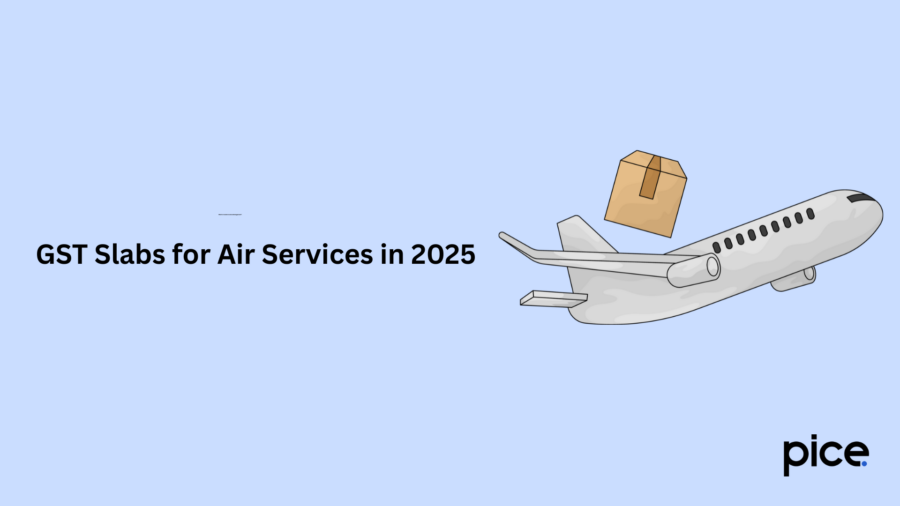
Air transport services under the GST taxation system are classified depending on the type of air travel service, with different tax rates assigned to various ticket categories.
Economy Class Air Tickets
By booking economy class air tickets, you are liable to pay a 5% GST. This rate is determined to make business travel wallet-friendly.
Business Class Air Tickets
When considering business class tickets, you are subject to a higher GST rate which is 12%. This rate reflects the premium vibe of this service.
Chartered Flights for Religious Travels
Chartered flights for going for devotional trips are also subject to a 5% GST rate. It is because the government aims to enhance accessibility for religious travel.
GST Slabs for Rental Services of Aircraft/Chartered Flights
Aircraft rental services fall under an 18% GST slab, regardless of whether they include an operator, maintaining a uniform tax framework for such services.
GST Slabs for Air Transportation Services (Cargos)
Air cargo transportation falls under a standardized GST rate of 18%. It ensures uniformity when considering taxation structure across air freight services and promotes seamless operations within the logistics sector.
When it comes to passengers travelling for official purposes, GST paid on air tickets is eligible for an Input Tax Credit (ITC). In this scenario, airline companies can also claim ITC on input services for economy-class passengers.
In the case of business class, ITC can be availed on costs like food, spare parts and other inputs, except for fuel expenses. The whole framework boosts efficiency while offering cost-effective travel options.
GST Rates on Water Services in 2025
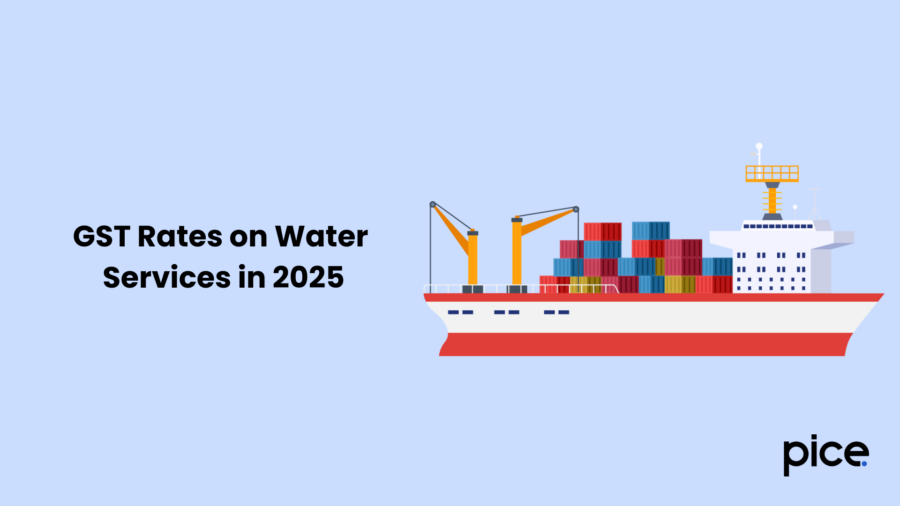
When you consider rental services for water vessels such as freight ships, an 18% GST rate is applied on transport charges, whether operated with or without an operator. This tax applies to hiring or leasing vessels for diverse uses. It can be due to logistics and transportation.
On the other hand, water transport services for goods and passengers are taxed at a 5% GST rate. However, this rate excludes input tax credit, so businesses cannot reclaim the GST paid on these services.
GST Rates on Other Transport Services
The Indian government applies a 5% GST on transport services like inland waterways. It does not allow businesses to claim Input Tax Credit. As a result, companies must factor in this cost when calculating their expenses.
Entities related to the transportation sector need to stay informed about GST slabs across various transport modes. It helps manage expenses effectively and comply with tax regulations.
Goods Transport Agency Under GST
Goods Transport Agencies offer a wide range of services except transportation. They are:
● Trans-shipment
● Loading and Unloading
● Temporary Warehousing
● Packing and Unpacking
When establishments bundle these services with transportation, they fall under the GTA structure. GTAs follow GST regulations by applying the applicable tax rates and providing invoices with details.
GST Liability in GTA Scenarios
For GST liability in GTA transactions, you need to understand that it depends on the parties involved. The table below highlights various scenarios to provide clarification on who must pay GST when hiring a goods transportation agency.
| Service Provider | Supplier | Receiver of Goods | Individual Paying Freight | Individuals Subject to Pay GST |
| GTA | Co-operative Society | Registered Dealer | Co-operative Society | Co-operative Society |
| GTA | Company ABC (Registered) | URD B (Unregistered Dealer) | Company ABC | Tax must be paid under the Reverse Charge Mechanism |
| GTA | Registered Manufacturer | Registered Dealer | Registered Manufacturer | Registered Manufacturer |
| GTA | URD A (Unregistered Dealer) | Registered Dealer | URD A (Unregistered Dealer) | Tax must be paid under the Reverse Charge Mechanism |
| GTA | Private Individual | Registered Dealer | Private Individual | Excluded under earlier notifications |
| GTA | Partnership Firm (Registered) | Unregistered Dealer | Partnership Firm | Partnership Firm |
Goods and Services Exempted Under GST Framework
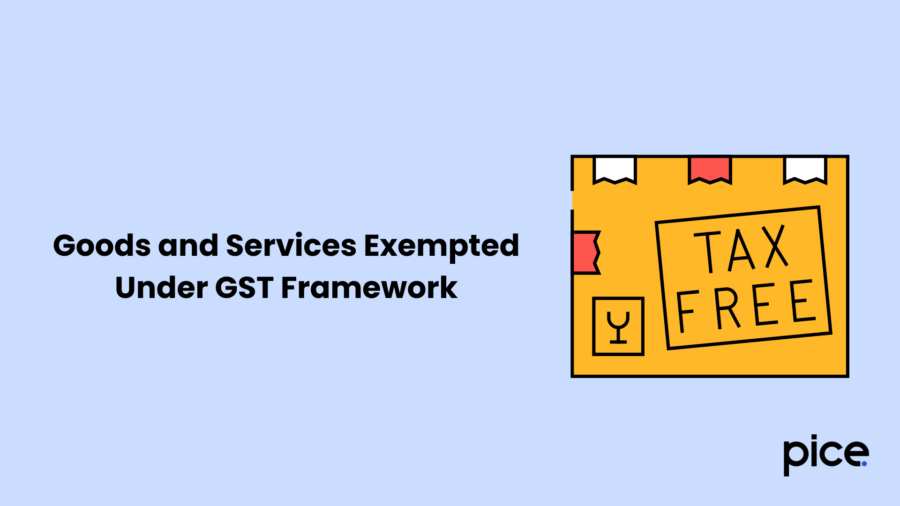
The following categories fall under this exemption:
● Relief materials for victims of human-induced disasters
● Pulses, salt, milk, rice flour and other food grains
● Newspapers and magazines
● Agricultural produce and organic manure
● Household products transportation
● Services associated with transportation where the total cost is less than ₹1,500
● Military and defence gear
● Goods transportation for non-GTA services or unregistered person
What Is the HSN Code for Transport Charges?
9967 is the HSN code for transport charges. Entities must include this code on invoices to classify transactions correctly so they can apply the appropriate tax. It not only ensures transparency but also accuracy when it comes to financial records.
Key Benefits of GST Application on Transportation Services
GST on transportation services offers several key benefits that simplify taxation and improve efficiency for businesses. Some of the key benefits are discussed below:
1. Input Tax Credit
Establishments can claim input tax credits on GST paid for transport-related inputs. It can reduce their overall tax liability. This advantage increases cash flow and encourages investment in the transportation industry.
2. Reduced Expenses
GST lowers the overall cost of transportation services by removing the cascading effect of taxes. Entities can pass these tax savings to customers, making transportation services less expensive.
3. Efficient Compliance
GST’s standardised rules and regulations and electronic filing system simplify the whole compliance process. In addition, it improves efficiency. Enterprises experience a well-organised tax process with fewer discrepancies.
Conclusion
The applicable GST rate on transportation services across various modes, such as road, rail, air and waterways, highlights how the tax framework promotes compliance and streamlines operations. By standardizing tax rates and allowing input tax credits in specific cases, GST reduces the complexity of the tax system and fosters cost management.
This system supports economic growth while ensuring fair taxation in the transportation sector.
💡If you want to streamline your invoices and make payments via credit or debit card or UPI, consider using the PICE App. Explore the PICE App today and take your business to new heights.
 By
By 






